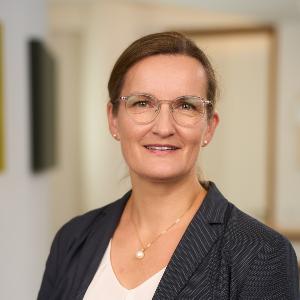From the data machine room
31 Oct 2023
Susanne Kuger holds the Chair of Empirical Social and Educational Research for Children and Adolescents.
31 Oct 2023
Susanne Kuger holds the Chair of Empirical Social and Educational Research for Children and Adolescents.

Susanne Kuger is Chair of Empirical Social and Educational Research for Children and Adolescents at LMU | © Fabian Vogl
When explaining what she does, Susanne Kuger likes to speak of the “data machine room”. A recent addition to the ranks of LMU’s professors, she is an expert in gathering data on the situation of different population groups, especially children and adolescents in Germany. Kuger came to LMU in 2022 and also serves as Director of Research at the German Youth Institute (DJI). At the latter institute, she likewise holds a position as Head of the Department of Social Monitoring and Methodology, where she is responsible for surveys involving thousands of respondents.
Kuger sees survey research as the backbone of fundamental content research in this field. For example, the data yielded by surveys gives her a head start in spotting the “issues of tomorrow”, such as the challenges that growing up poses to children with a migration background.
Susanne Kuger studied psychology at Julius-Maximilians-Universität of Würzburg, majoring in cognitive developmental psychology and child and adolescent psychiatry. Ultimately, the decision to stay in academia was an easy one: “I realized that this is my thing. Mathematics is me. Statistics is me.”
She therefore applied to join a research group studying educational processes, competence development and selection decisions in preschool and school-age children (BiKS) at the University of Bamberg. In 2011, she then earned her doctorate on the subject of gifted children.
Her next move was to the Leibniz Institute for Research and Information in Education (DIPF) in Frankfurt, where was involved in the 2015 PISA consortium and in methodological research projects, for example. In 2017, Kuger received her professorship in empirical educational research and educational science at the University of Bamberg. A year later, she took charge of the Department of Social Monitoring and Methodology at the German Youth Institute.
The educationalist’s own research focuses above all on early childhood and the non-formal/informal contexts of growing up. Another key aspect is improving methods of social and educational research.
Cooperation is central to Kuger’s new role as Chair of Empirical Social and Educational Research for Children and Adolescents at LMU: “There are tremendous synergies between the academic work that goes on at the university and the more applied research for reporting or policy evaluation, such as that at the DJI,” the professor says. While the one aspect presupposes an exact knowledge of Book Eight of the German Social Code, for instance (the volume concerning children and young people), the other scores by being embedded in topical scientific discourse. The two perspectives can thus complement each other – a fact that has already prompted an initial application for a joint project at LMU.
Kuger nevertheless stresses that the students themselves were crucial in clinching her decision to follow the call to LMU: “I really enjoy teaching,” she says. “It is great fun working with students, because some very clever questions arise from time to time. It is sometimes salutary to be confronted with the normal life perspective I get from students. I look forward to being challenged in this way, and to the fresh stimuli I can pick up.”
The students themselves benefit, too: One of Susanne Kuger’s plans is to offer an advanced seminar as an introduction to empirical work and research in the context of policy consultation.